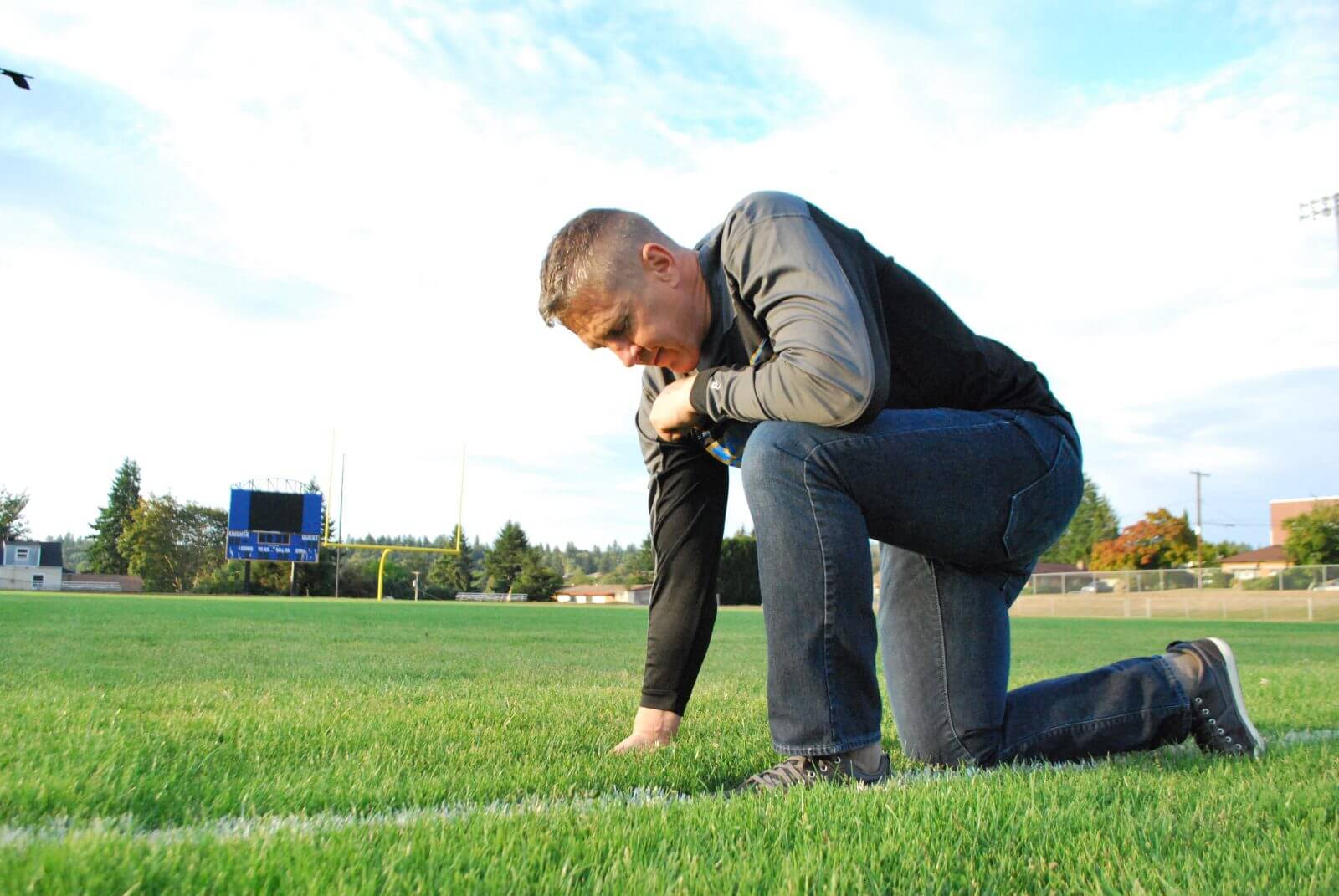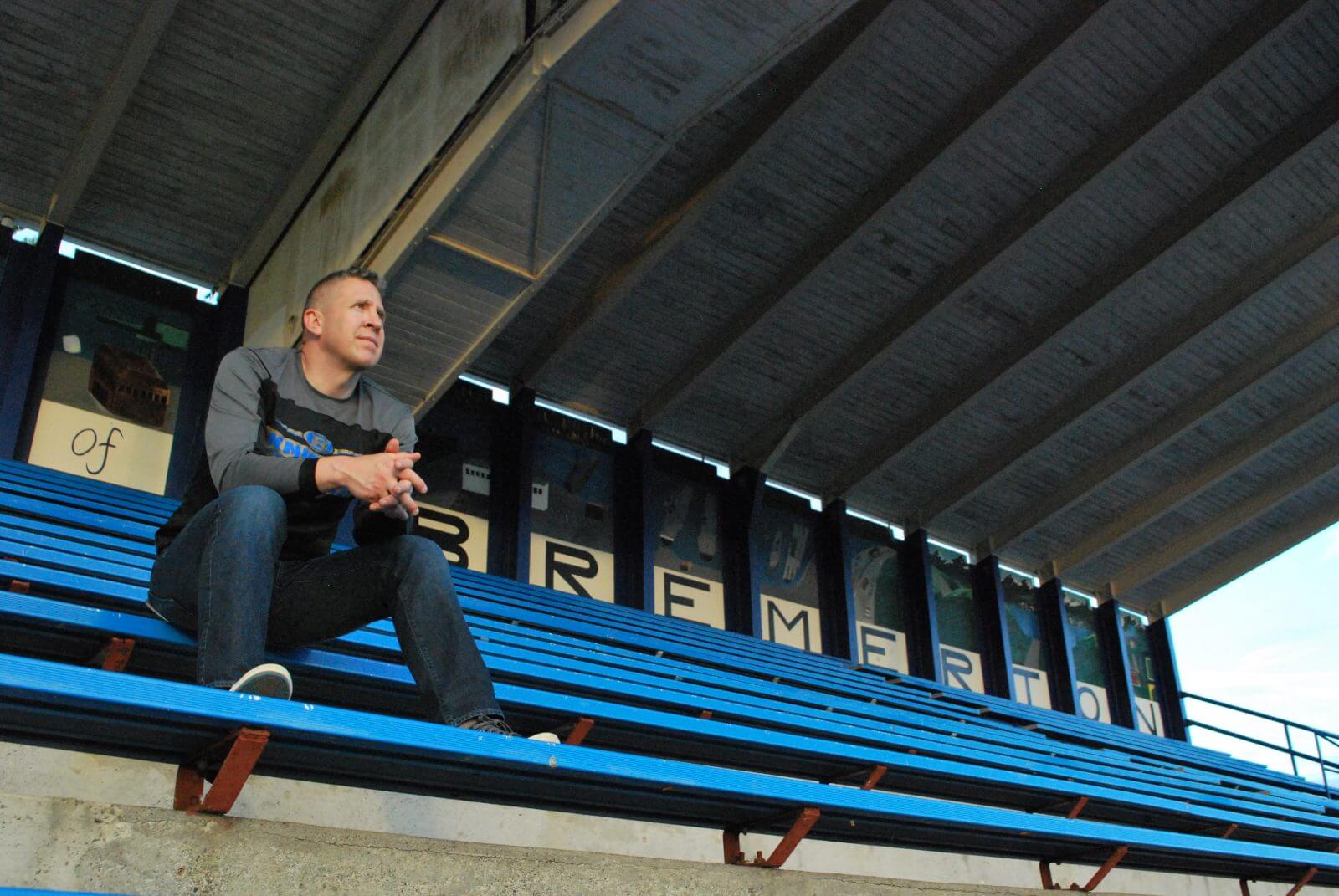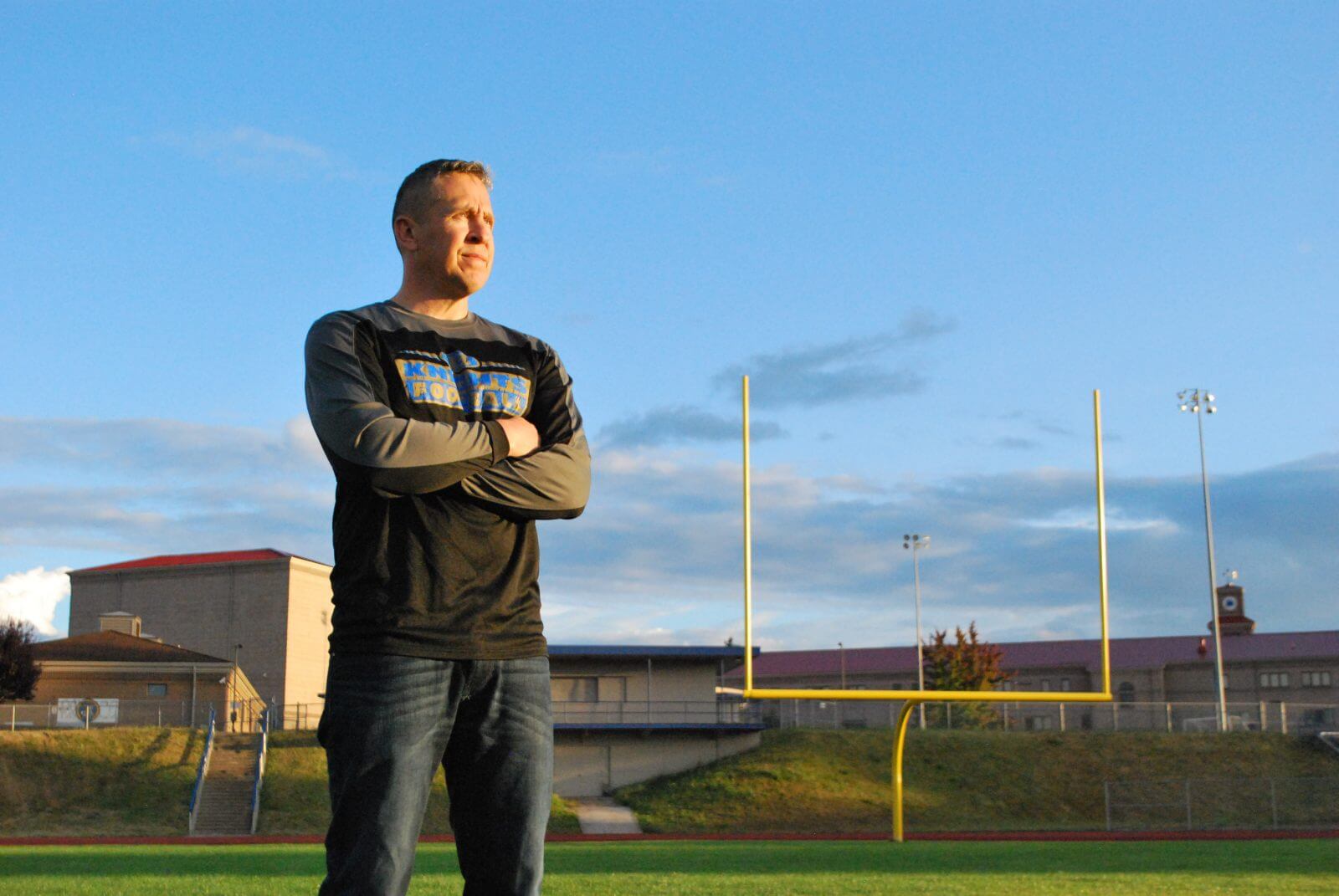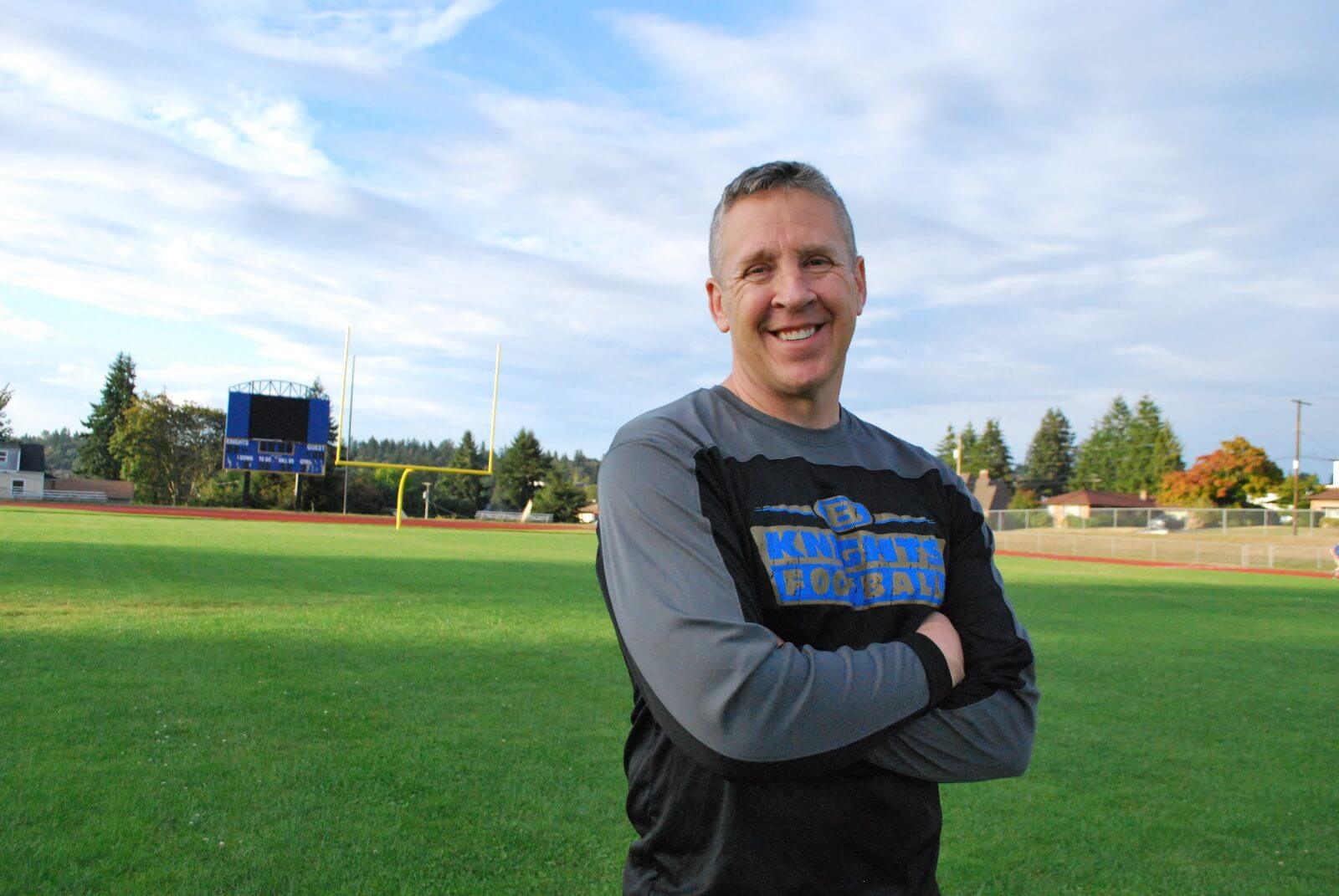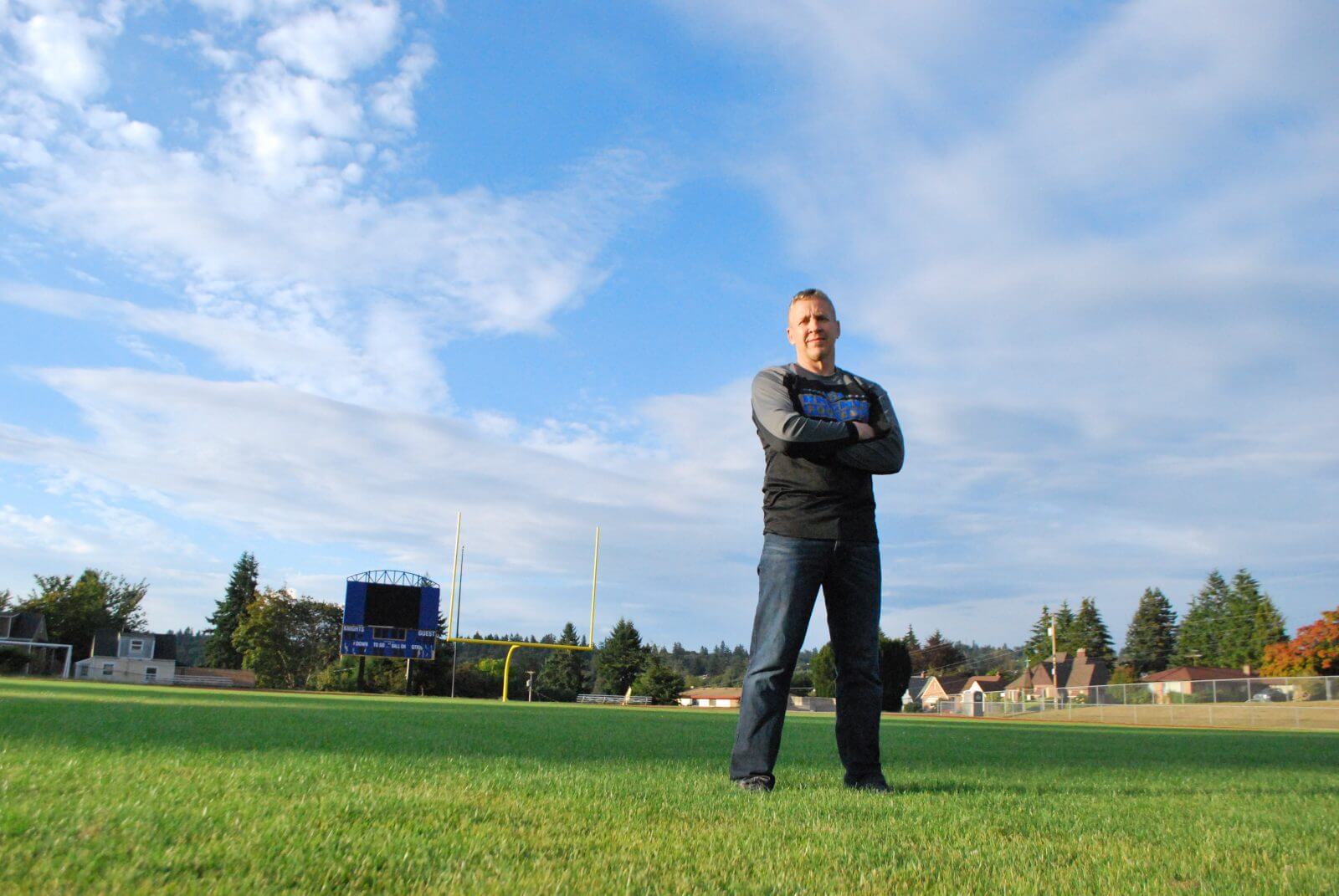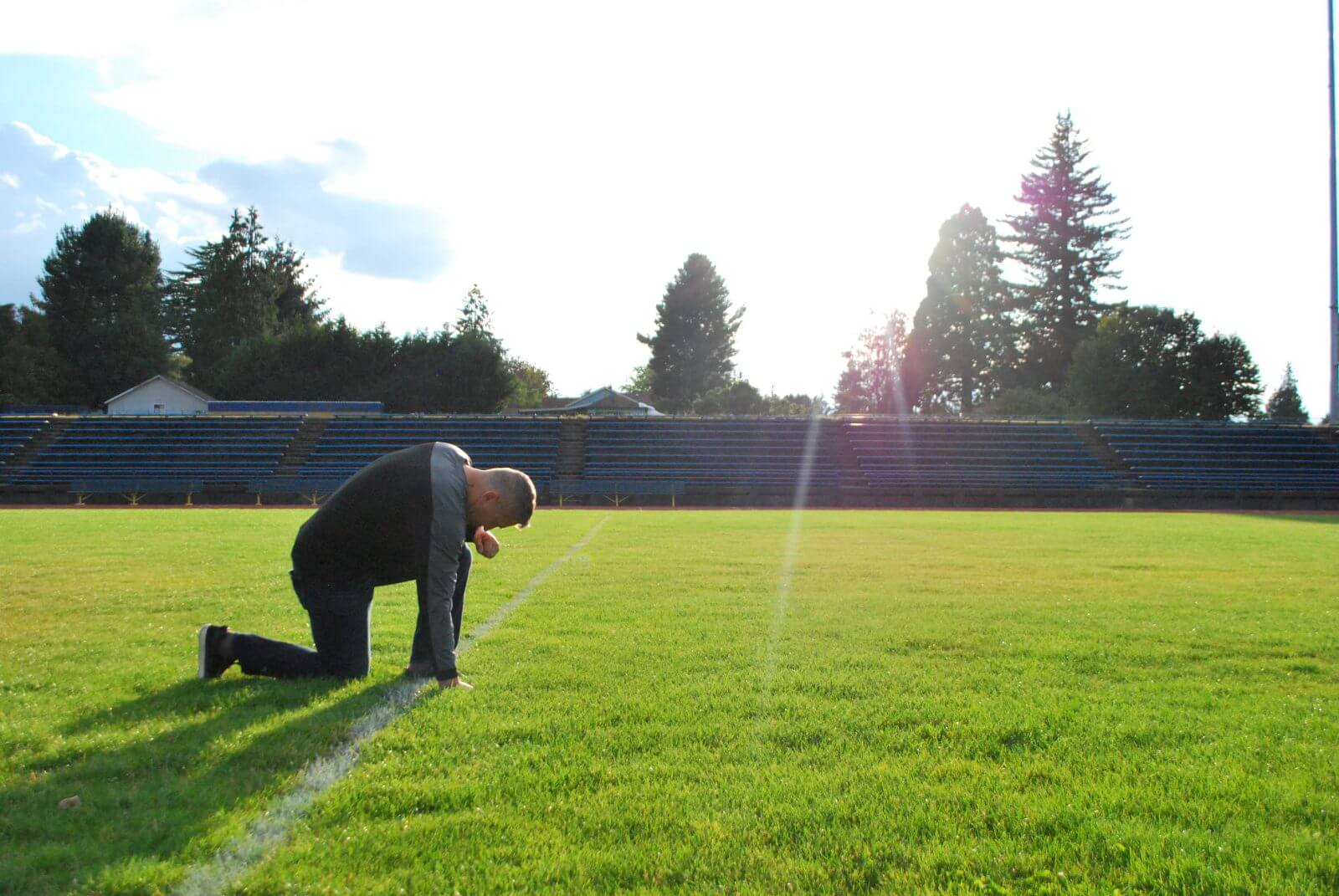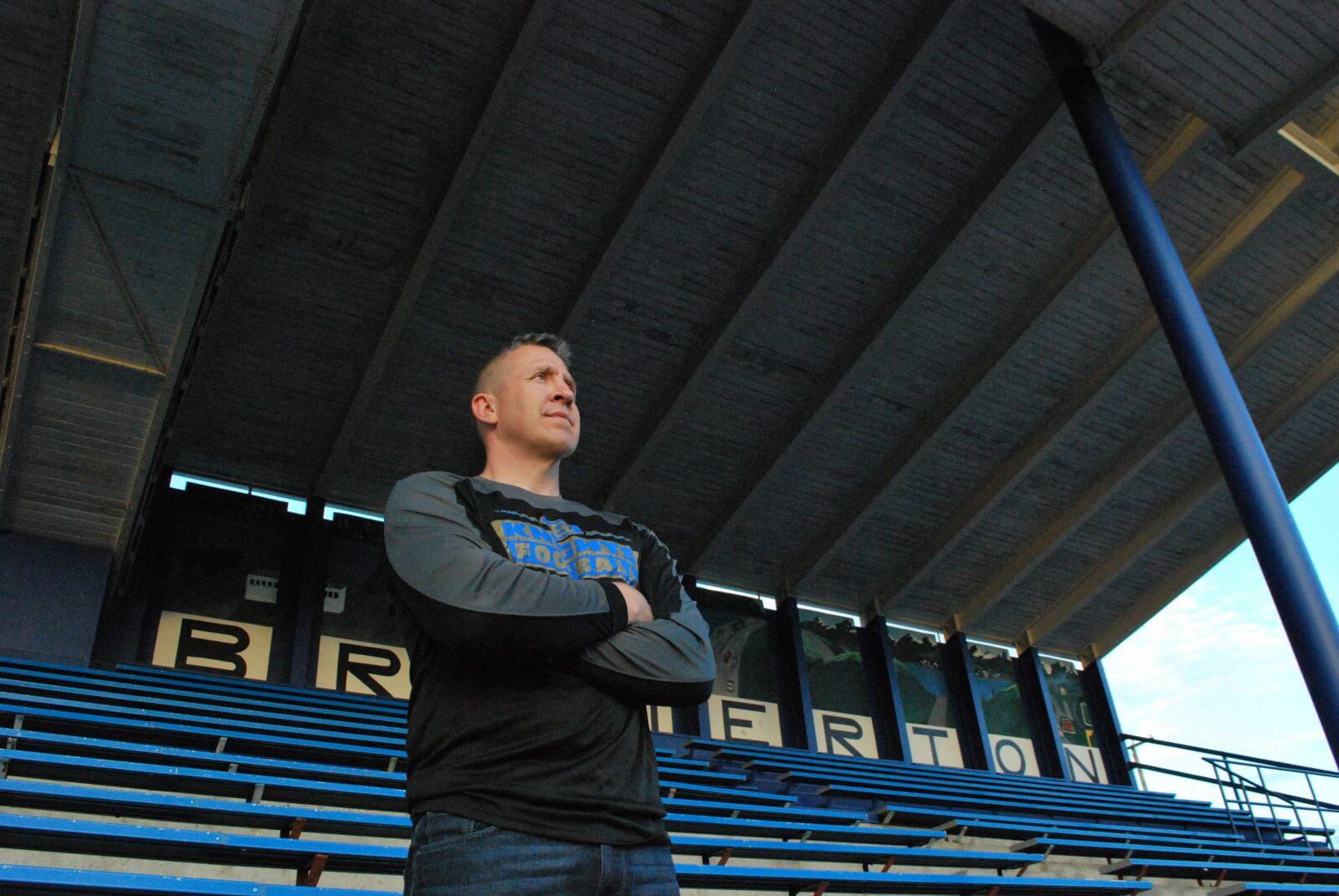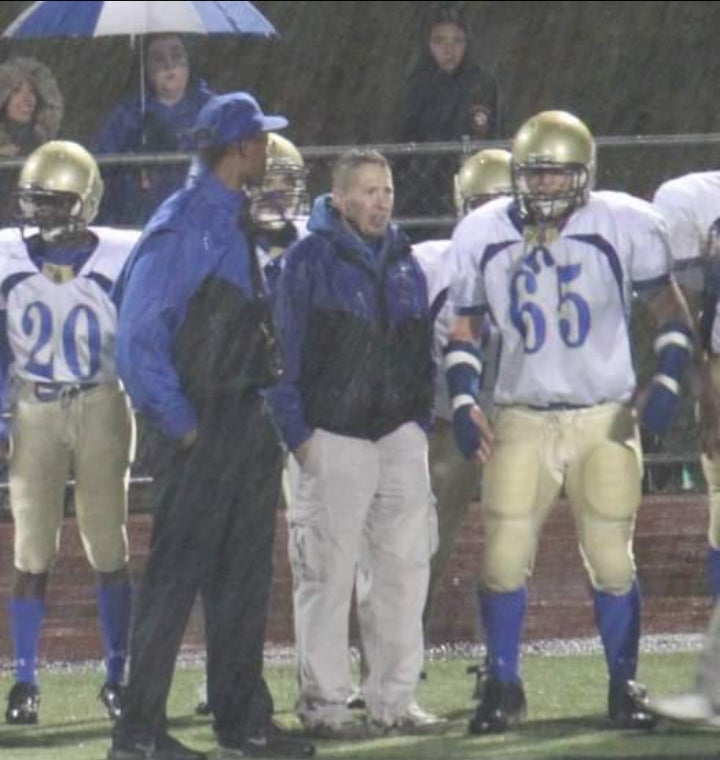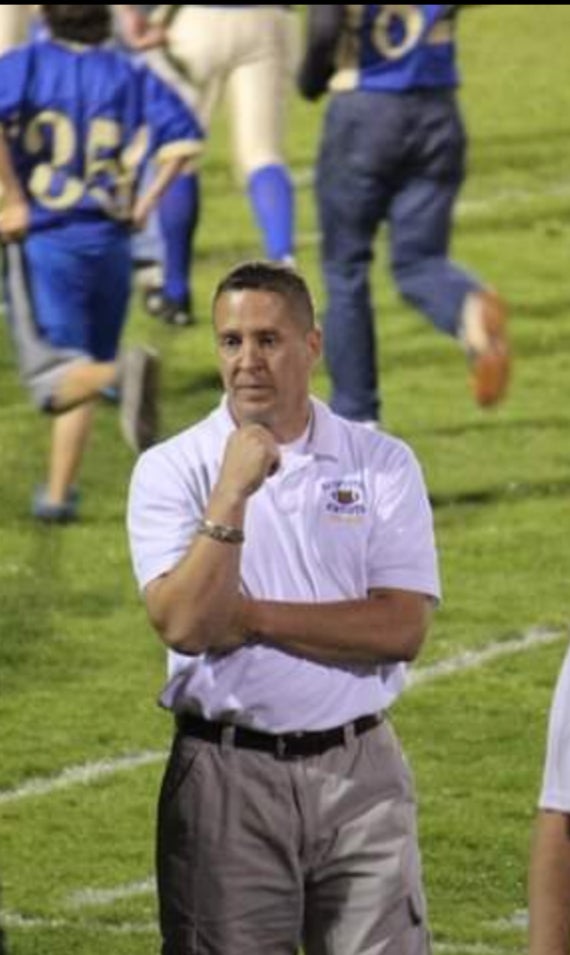Supreme Court Media Kit |
Coach Joe Kennedy, an eighteen-year Marine veteran, was an assistant coach for the Bremerton High School (BHS) varsity football team. Before he even coached his first game, the Marine-turned-football coach made a commitment to God that he would give thanks at the conclusion of each game for what the players had accomplished and for the opportunity to be part of their lives through football.
After the whistle of his very first football game in 2008, Coach Kennedy took a knee and quietly prayed, thanking God for his players. His quiet, private prayers lasted only 15-30 seconds. Coach Kennedy continued this practice after every game for seven years.
Initially, Coach Kennedy prayed quietly and alone. After several games, students took notice of Coach Kennedy’s post-game prayers and asked if they could join him. He told them, “[t]his is a free country” and “[y]ou can do what you want.” Some players elected to gather near Coach Kennedy after games and, on occasion, BHS players would invite players from the opposing team to join them. Sometimes no players gathered and Coach Kennedy prayed alone.
Over time, Coach Kennedy began offering short motivational speeches to players who gathered after the game. Those speeches sometimes included religious content and a short prayer, but he never coerced, required, or asked any student to pray or told any student that it was important that they participate in any religious activity.
Seven years after Coach Kennedy’s first prayer, an employee of another high school mentioned the practice to the BHS principal. A BHS administrator expressed disapproval to Coach Kennedy, prompting Coach Kennedy to post on Facebook: “I think I just might have been fired for praying.”
On September 17, 2015, Superintendent Aaron Leavell sent Coach Kennedy a letter informing him of the district’s investigation into whether Coach Kennedy had appropriately complied with the school board’s policy on “Religious-Related Activities and Practices.”
The district recognized that students had participated voluntarily in Coach Kennedy’s post-game religious expression and acknowledged that Coach Kennedy had “not actively encouraged, or required, participation.”
Regardless, the district concluded Coach Kennedy’s midfield, post-game prayers with students violated its policies and then set forth new guidelines for Coach Kennedy’s religious expression. According to the district, Coach Kennedy could “engage in religious activity, including prayer, so long as it does not interfere with job responsibilities,” the activity is “physically separate from any student activity, and students [are] not . . . allowed to join such activity.”
Further, the district required that “such activity should either be non-demonstrative (i.e. not outwardly discernible as religious activity) if students are also engaged in religious conduct, or it should occur while students are not engaging in such conduct.”
In compliance with the district’s directive, Coach Kennedy immediately ceased participating in any group prayers. At the next game, he even abandoned his practice of private post-game prayer. On the way home from the game, he felt upset that he had broken the commitment he had made to God at the outset of his coaching career. So, he turned the car around and returned to the field. Coach Kennedy waited until everyone left both the field and stadium, then walked to the 50-yard line alone and knelt in silent prayer.
The next week, Coach Kennedy retained First Liberty Institute as counsel. First Liberty sent a letter to the district on October 15, 2015, informing them of Coach Kennedy’s sincerely-held religious belief that compelled him to pray following each football game. Further, First Liberty formally requested a religious accommodation under Title VII to allow Coach Kennedy to engage in a brief, quiet, solitary prayer at midfield at the conclusion of BHS games.
After the next game, Coach Kennedy walked to midfield for the customary handshake with the opposing team. As instructed by the district’s September 17 letter, he waited until the students began engaging in other conduct physically separate from him, such as walking toward the stands to sing the post-game fight song. He then knelt at the 50-yard line, closed his eyes, and prayed a brief, prayer.
While he was kneeling with his eyes closed, coaches and players from the opposing team, along with members of the public, decided to join him on the field and to kneel beside him. Coach Kennedy did not ask anyone to join him and did not know that anyone would join him.
On October 21, Superintendent Leavell sent an email to the Washington State Superintendent of Public Instruction. He had, days earlier, described Coach Kennedy’s religious expression as “fleeting”. However, he now said the issue in Coach Kennedy’s situation “has shifted from leading prayer with student athletes” to “a coaches [sic] right to conduct a personal, private prayer” on the fifty-yard line.
On October 23, 2015, hours before that evening’s football game, Superintendent Leavell sent Coach Kennedy a new letter in which he emphasized his “appreciation for [Coach Kennedy’s] efforts to comply with the September 17 directives” by the district.
Nonetheless, the district denied Coach Kennedy’s request for a religious accommodation to kneel and offer a brief, personal prayer because, in the district’s view, such conduct would be perceived as “government endorsement of religion.”
The district ended its letter by announcing a new policy: the district now prohibited Coach Kennedy from engaging in any “demonstrative religious activity” that is “readily observable to (if not intended to be observed by) students and the attending public.”
Under its new policy, the district prohibited Coach Kennedy—or any other employee when on-duty—from engaging in “demonstrative religious activity” within view of any student or the public, either silently or audibly. The only “accommodation” the district offered to Coach Kennedy was to permit him to pray in secret in a “private location within the school building, athletic facility[,] or press box.”
After the BHS football game ended on October 23, Coach Kennedy knelt alone at the 50-yard line and bowed his head for a brief, quiet prayer. After this game, Superintendent Leavell said that although this brief, solitary prayer “moved closer to what we want,” it was “still unconstitutional.”
Unwilling to break his commitment to God yet again, when the next game ended and the players began engaging in other post-game traditions, Coach Kennedy knelt alone to offer a brief, silent prayer of thanks at the 50-yard line.
Two days later, the district placed Coach Kennedy on paid administrative leave and barred him from “participating in any capacity in the BHS football program”, claiming that Coach Kennedy had impermissibly “engag[ed] in overt, public and demonstrative religious conduct while still on duty as an assistant coach.”
In a public document released by the school district entitled, “Bremerton School District Statement and Q&A Regarding Assistant Football Coach Joe Kennedy,” the district stated that Coach Kennedy “will not participate, in any capacity, in BHS football program activities” until he “affirms his intention to comply with the District’s directives.”
While the district conceded that Coach Kennedy had “complied with [the district’s] directives not to intentionally involve students in his on-duty religious activities,” the district refused to lift its suspension. Coach Kennedy did not return for the following season.
First Liberty Institute filed a lawsuit against Bremerton School District in a federal district court in 2016, asking the court to allow Coach Kennedy to continue coaching while the case made its way through court. The District Court, then the Ninth Circuit, denied the request. In 2018, the U.S. Supreme Court also denied the request, but four justices – Alito, Thomas, Gorsuch, and Kavanaugh – issued a statement expressing serious concern about how the school district and the lower courts had understood the First Amendment rights of public school teachers.
The Supreme Court sent the case back down to the District Court for further litigation. The District Court again sided with the school district in 2020, as did the Ninth Circuit in mid-2021. Attorneys with First Liberty and Kirkland & Ellis LLP refiled the case at the U.S. Supreme Court in September 2021.
In January 2022, the Justices announced that they would hear the case. The Justices will hear oral arguments on the case at the U.S. Supreme Court in Spring 2022.
“No teacher or coach should lose their job for simply expressing their faith while in public,” said Kelly Shackelford, President and CEO of First Liberty. “By taking this important case, the Supreme Court can protect the right of every American to engage in private religious expression, including praying in public, without fear of punishment.”
Paul Clement, former U.S. Solicitor General, partner at Kirkland & Ellis LLP and First Liberty volunteer attorney, said, “We look forward to presenting the Coach’s case, which goes to the heart of the First Amendment, to the Justices.”
Coach Kennedy added, “Six years away from the football field has been far too long. I am extremely grateful that the Supreme Court is going to hear my case and pray that I will soon be able to be back on the field coaching the game and players I love.”
In November 2022, a federal judge issued a final order in Coach Kennedy’s case.
On September 1, 2023, Coach Kennedy returned to the field and knelt in prayer after the game!
Press Release
For Immediate Release: 6.27.22
Contact: Lacey McNiel, media@firstliberty.org
Direct: 972-941-4453
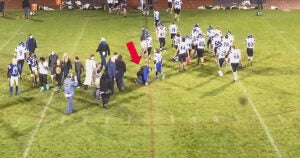
(Coach Kennedy at the Bremerton High School football field on October 26, 2015. Photo credit: First Liberty Institute. May be republished. Access full resolution photos at CoachKennedyFacts.com under “Photos and Videos.”)
Prayer Answered: In Landmark Ruling, Supreme Court Sides with Football Coach in Battle Over Brief Prayer at 50 Yard Line
U.S. Supreme Court reverses Ninth Circuit decision allowing school district to fire coach because of his silent 15-second prayer
Washington, DC—In a 6-3 decision, the U.S. Supreme Court upheld the right of former high school football coach Joe Kennedy to take a knee in quiet prayer after football games even if he can be seen by students and the general public. Importantly, today’s decision respects the Constitutional rights of all public-school teachers and coaches to engage in a brief, personal prayer in public.
“This is a tremendous victory for Coach Kennedy and religious liberty for all Americans,” said Kelly Shackelford, President, CEO, and Chief Counsel for First Liberty. “Our Constitution protects the right of every American to engage in private religious expression, including praying in public, without fear of getting fired. We are grateful that the Supreme Court recognized what the Constitution and law have always said – American’s are free to live out their faith in public.”
Paul Clement, former U.S. Solicitor General and First Liberty network attorney who argued Kennedy’s case before the Justices, said, “After seven long years, Coach Kennedy can finally return to the place he belongs – coaching football and quietly praying by himself after the game. This is a great victory for Coach Kennedy and the First Amendment.”
In response to today’s opinion, Coach Kennedy said, “This is just so awesome. All I’ve ever wanted was to be back on the field with my guys. I am incredibly grateful to the Supreme Court, my fantastic legal team, and everyone who has supported us. I thank God for answering our prayers and sustaining my family through this long battle.”
According to the opinion, “Respect for religious expressions is indispensable to life in a free and diverse Republic—whether those expressions take place in a sanctuary or on a field, and whether they manifest through the spoken word or a bowed head. Here, a government entity sought to punish an individual for engaging in a brief, quiet, personal religious observance doubly protected by the Free Exercise and Free Speech Clauses of the First Amendment. And the only meaningful justification the government offered for its reprisal rested on a mistaken view that it had a duty to ferret out and suppress religious observances even as it allows comparable secular speech. The Constitution neither mandates nor tolerates that kind of discrimination.”
To learn more about the case, visit CoachKennedyFacts.com.
###
About First Liberty Institute
First Liberty Institute is a non-profit public interest law firm and the largest legal organization in the nation dedicated exclusively to defending religious freedom for all Americans.
To arrange an interview, contact Lacey McNiel at media@firstliberty.org or by calling 972-941-4453.
First Liberty Press Release – 4.27.22
First Liberty Press Release – 3.3.22
First Liberty Press Release – 1.14.22
First Liberty Press Release – 9.14.2021
First Liberty Press Release – 7.19.2021
First Liberty Press Release – 3.18.2021
First Liberty Press Release – 1.25.2021
First Liberty Press Release – 7.23.2020
First Liberty Press Release – 3.6.2020
First Liberty Press Release – 1.22.2019
First Liberty Press Release – 6.25.2018
First Liberty Press Release – 1.25.2018
First Liberty Press Release – 9.21.2017
First Liberty Press Release – 8.23.2017
First Liberty Press Release – 11.8.2016
Overview Resources
Supreme Court (2021-22)
Amicus Briefs
Ninth Circuit (2020-21)
Amicus Briefs to Ninth Circuit (2020-21)
District Court (2019)
Supreme Court (2018-19)
Amicus Briefs to Supreme Court (2018-2019)
Ninth Circuit (2017-18)
Amicus Briefs to Ninth Circuit (2017-18)
District Court (2016)
Pre-Litigation
